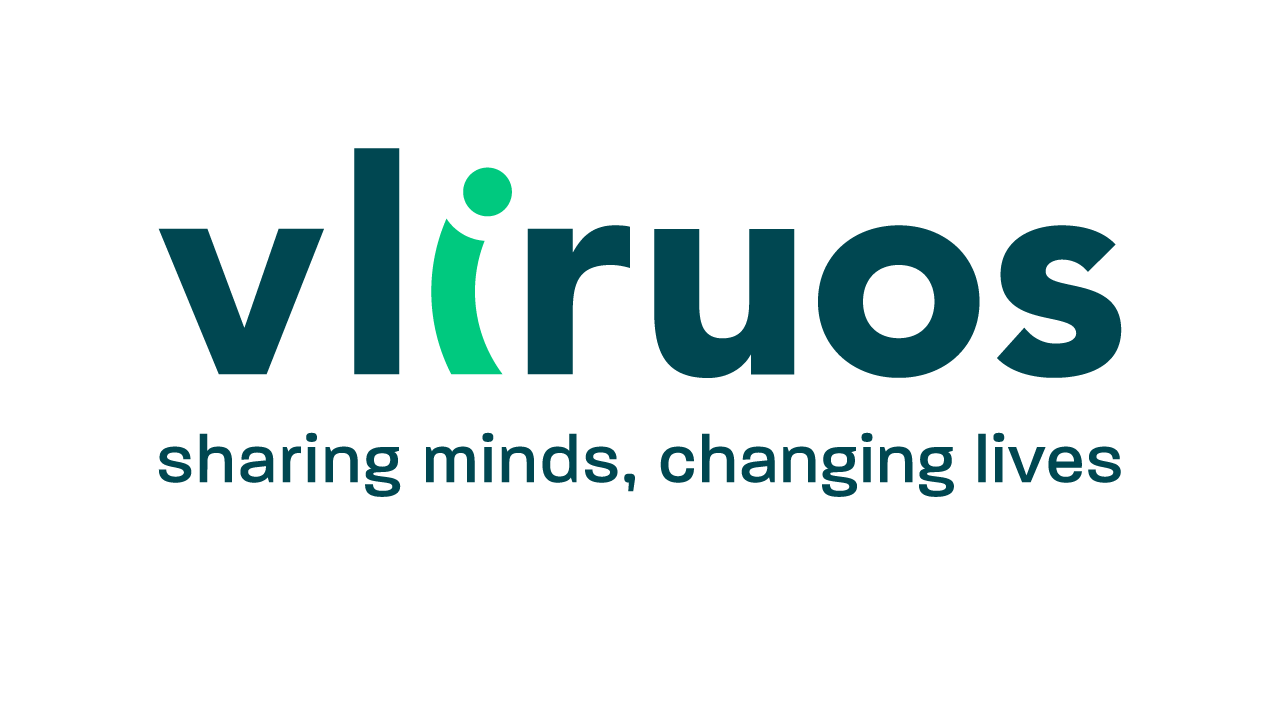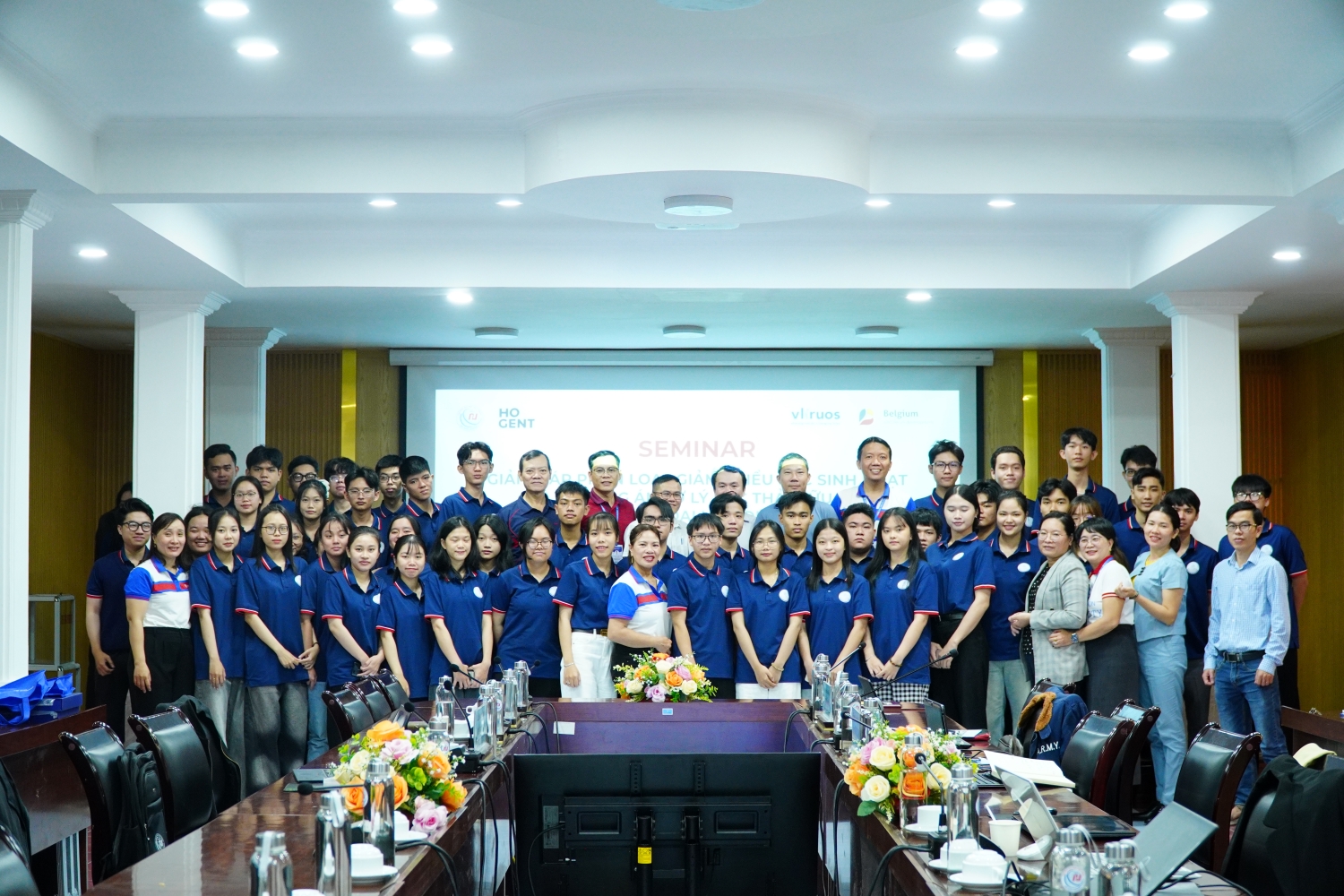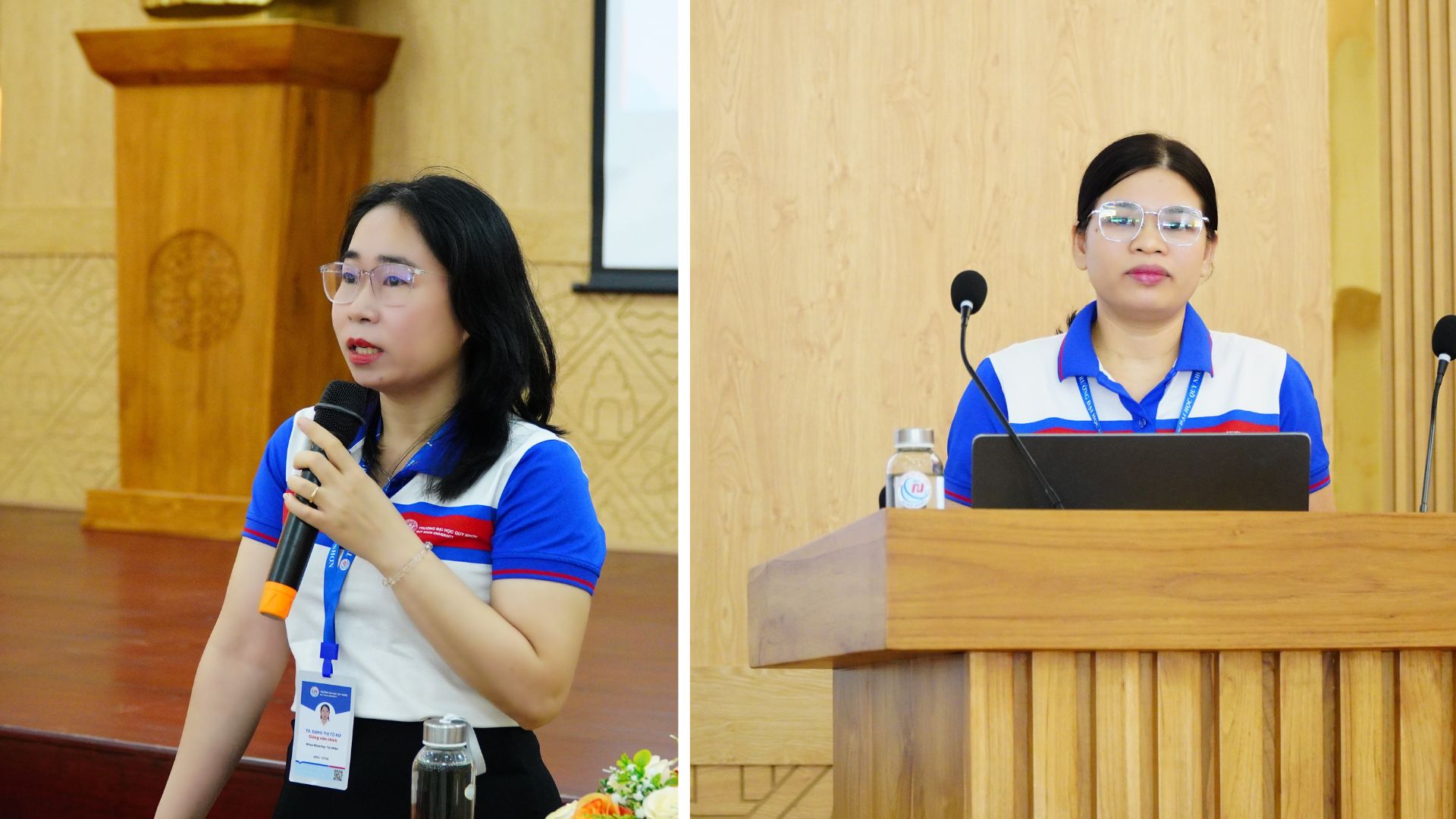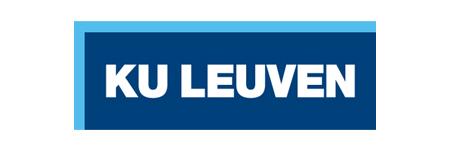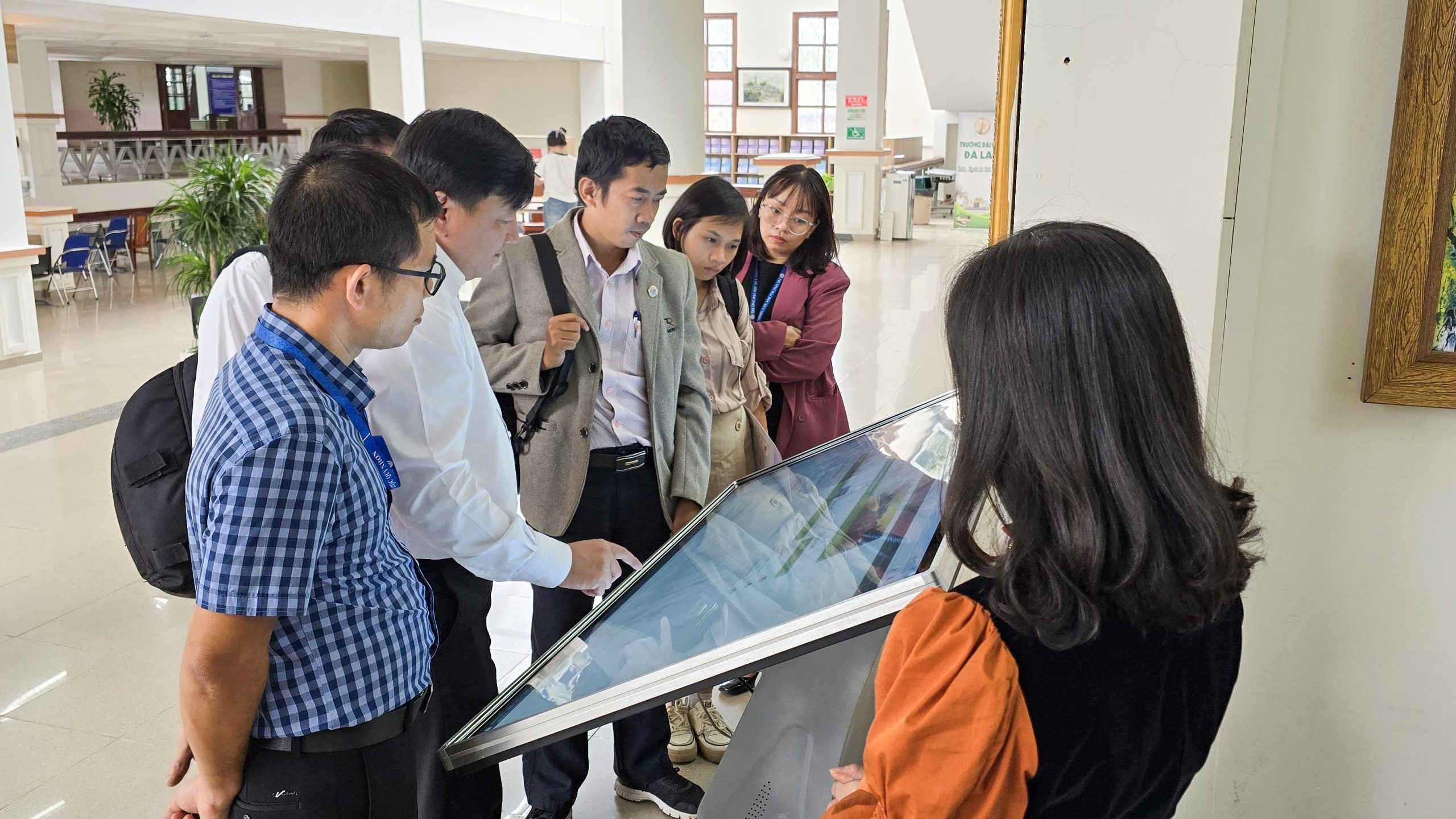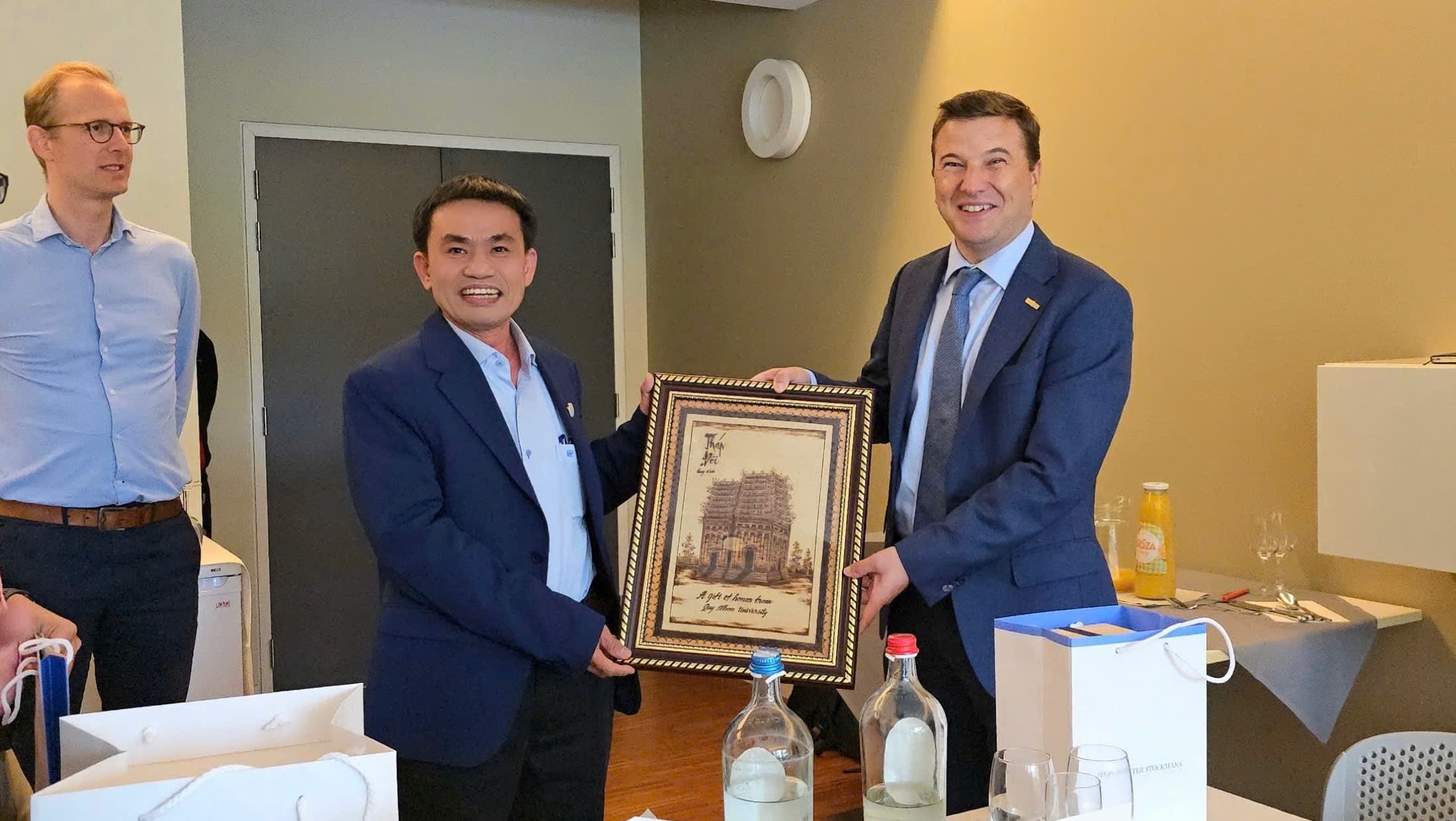PhD call – Two sandwich PhD positions in Development of nanomaterials for Solar Drying system and Biogas purification
Short summary of the involved universities
Quy Nhon University currently has more than 500 academic staffs employed in 3 faculties and 9 academic departments providing 46 bachelor’s, 22 master’s and 3 doctoral programmes in the disciplines of pedagogy, natural sciences, social sciences and humanities, engineering and technology, and economics, for nearly 14,000 students. Since QNU’s establishment 45 years ago, the University has obtained major achievements, and holds the 26th place in Vietnam, according to the Ranking Web of Universities (webometrics.info, accessed on 1st October 2022).
KU Leuven has an almost 600-year tradition of academic excellence in a wide variety of disciplines. Today, it is Belgium’s largest and highest-ranked university. As a leading research university and co-founder of the League of European Research Universities and Una Europa. The university consists of 15 faculties, which are organised in 3 research groups: Humanities & Social Sciences, Science, Technology and Engineering, and Biomedical Sciences. KU Leuven accommodates 50,000 students, spread across the various campuses in Leuven and elsewhere in Flanders. The University and University Hospitals Leuven each employ almost 10,000 people. For research, KU Leuven ranks among the world’s finest. KU Leuven has become a cosmopolitan institution in a rapidly changing urban environment. Its unique profile reconciles cutting-edge science with quality of life and openness to talent.
Ghent University is a world-class, open, pluralistic and socially engaged university. It is over 200 years old, and conducts research in many scientific disciplines. Ghent University looks the whole world straight in the eye. Various disciplines, such as biotechnology, aquaculture, microelectronics, history and veterinary medicine are internationally renowned. This university is constantly expanding its horizons, by collaborating with the best universities in Belgium and abroad. It is the first European university in South Korea with the Ghent University Global Campus. Ghent University consists of 11 faculties, 50,000 students and 15,000 employees. The university offers more than 200 programmes with 73 English-taught master’s programmes.
- ABOUT THE IUC PARTNERSHIP WITH QUY NHON UNIVERSITY AND SUB‑PROJECT 2: ENHANCING THE PERFORMANCE OF THE SOLAR-ASSISTED DRYING SYSTEM AND BIOGAS PRODUCTION BY USING NOVEL NANOMATERIALS AND TECHNICAL SOLUTIONS
Quy Nhon University (QNU) was selected by the Flemish Interuniversity Council-University Development Cooperation (VLIR-UOS) as a partner university to start an Institutional University Cooperation (IUC) partnership. This IUC partnership capacity building project at QNU (IUC QNU partnership) will run from 1 September 2022 to 31 August 2027 (Phase 1), and will continue in the next five years (Phase 2) under the coordination of University of Leuven (KU Leuven), Belgium. The objective of an IUC is institutional capacity building, enabling the university to fulfill its role in terms of education, research and strengthening the university-industry linkages and technology transfer. The IUC QNU partnership aims to sustainably boost the livelihoods of farmers and living conditions of residents in the South-Central Coast and Central Highlands in Vietnam by enhancing education, research and service delivery capacities in agricultural/food/environmental sciences and renewable energy. These objectives will be achieved through five theme-based sub-projects (SP1-SP5), two transversal institutional strengthening sub-projects (SP6-SP7) under the coordination of a Project Support Unit (PSU). Several Flemish Higher Education Institutions, namely KU Leuven, Ghent University, Hasselt University, HOGENT, and VIVES , are involved in this partnership.
In sub-project 2, we aim at providing novel scientific and technical solutions, leaning on the power of nanomaterials and nanotechnology, for improving the efficiency and quality of agricultural activities related to plant drying and biogas production. At present, agricultural products in rural and coastal areas are commonly dried by sunlight. Despite the simplicity and low investment cost of direct drying on the ground or on plastic sheets, this technique requires intense direct sunlight, which is problematic during the rainy season and drying conditions are uncontrollable, causing a high variation in the product quality. In addition, direct drying is not suitable for drying the large amounts of yielded products during the harvesting time. Local farmers would benefit from affordable alternatives that can be upscaled and used efficiently in different weather conditions. The integration of nanomaterials in conventional drying techniques is a promising approach to reduce the workload and control the quality local agricultural products, increasing their economic value.
Biogas production is commonly used to handle animal waste from husbandry activities, as it bypasses negative environmental impacts (i.e., in comparison with its direct discharge into the environment) and produces a renewable source of energy. However, currently used biogas installations are rather primitive and the gas production is neither easy to control nor selective. The biogas contains substantial amounts of H2S and CO2, which causes fetidity, destroys metallic components and lowers the ignition temperature, preventing farmers from using those installations. All these obstacles require careful analysis and more research is needed to explore sustainable solutions.
By the end of Phase 1, we expect to (i) have a better view on the concrete problems of the local farmers, have developed (ii) a nanomaterials-based solar-assisted food drying system (iii) and a selective biogas plant, and (iv) tested pilot-scale versions of those tools at a local farmer. At the institutional scale, we target to build up a nanomaterial lab focusing on renewable energy.
- WHO WE ARE LOOKING FOR
2.1. PhD position in “Smart Glazing for Dynamic Solar Energy Control”
Nanomaterials are key elements for smart materials of the future. In general, a smart material responds to an environmental stimulus by a dynamic and reversible change of its properties. Thermochromic smart materials reversibly change their optical properties following a variation of the ambient temperature. For many solar applications, thermochromic materials regulate the transmission of radiant energy based on ambient temperature. Many conventional thermochromic materials employ temperature-sensitive dyes; however, photodegradation limits their lifetime, especially for solar applications. More recently, non-dye thermochromic nanomaterials, such as quantum dots, photonic crystals, nanoplasmonic surfaces, and vanadium dioxide nanoparticles are emerging as attractive alternatives for solar energy harnessing applications. There are a few challenges for practical realizations of these nanomaterials, including (i) tuning the transition temperature for a particular application, (ii) selective spectral control of the transmittance over a wide range suitable for most applications, i.e., solar range: 400-3000 nm, (iii) sufficient transmittance modulation over a wide spectral range, and (iv) a small transition temperature hysteresis.
Smart windows based on glazing coated with thermochromic nanomaterials dynamically modulate the transmission of visible light and solar energy due to changes in temperature, which can lead to improved energy efficiency compared to conventional glazing. Such smart windows are attractive for multiple reasons: (i) self-operation without external power or computerized control, (ii) modulation of the solar heat gain between the high and low transmittance states, (iii) low production costs, and (iv) low installation effort. Currently, smart window thermochromic nanomaterials are being developed for applications that require the transmission of luminous light (400-700 nm) and modulation of solar radiation (700-3000 nm), such as residential and commercial buildings to improve energy efficiency and greenhouses. However, this trend has not been applied efficiently to crop drying. A smart drying system with thermochroic nanomaterial coated glazing, designed for the drying of a particular crop, could drastically improve crop yields and reduce manpower and the post-harvesting time. For example, rice kernels are harvested twice a year – once in the summer season and once in the winter season. Significant crop loss occurs in the winter season due to rain and the lack of dedicated drying resources, which require significant labor and cost related to drying with forced-air drying systems. A dedicated smart crop drying system could significantly increase crop yields and thus the profitability of the winter harvest.
In this project, a Solar Assisted Drying System for drying agricultural products using solar energy will be developed. The drying system will target an operating temperature range of 38-42°C. The outer panels of the drying chamber are glazings coated with novel nanomaterials designed to dynamically modulate solar energy transmission based on the internal temperature of the drying chamber. The new smart glazing will allow dynamic blocking of a wide spectral band of the incoming solar radiation, e.g., 400-3000 nm, in contrast to conventional thermochromic glazings that modulate only the infrared region of the solar spectrum. Different nanomaterials with thermochromic, electrochromic, and plasmonic properties will be explored as well as quantum dots. The most promising nanomaterials will be incorporated into a polymer matrix and dispersed across test glass panels for evaluation. The light-to-heat conversion efficiency of the nanomaterials will be evaluated. Several testing and characterization methods will be employed to evaluate the performance of the nanomaterials, including optical spectroscopy, scanning electron microscopy, and x-ray photoelectron spectroscopy. As part of this project, a field prototype of the Solar Assisted Drying System will be developed for testing the effectiveness of drying rice kernels employing the new nanomaterial coated glazing.
The successful candidate is expected to have the following profile:
- Hold a master’s degree in Materials Science, Solid State Physics or equivalent;
- Be able to work systematically to complete the doctoral research and other studies within the overall target period of four years;
- Design and conduct research independently, with the support of your supervisors and other members of the academic community;
- Prepare yourself carefully for meetings with the supervisors and respect the agreed schedules;
- You are responsible for the progress, quality, and reliability of your own research work and report to your supervisors about the progress of your research regularly;
- You are responsible for reporting and publishing the results of your research work agreed upon with the supervisors;
- You have good ethics and observe ethical principles of research;
- Become acquainted with practical matters related to academic work and other scientific activities;
- Prior expertise will be a plus including scientific publications and presentations at specialized conferences;
- You are a good communicator in English and wish to become a researcher as part an international team.
- Prior experience with material characterization and/or plasmonics would be advantageous.
Supervisor: Prof. Dr. Ewald Janssens, KU Leuven, Belgium
Co-supervisor: Prof. Dr. Kristiaan Temst, KU Leuven, Belgium
Local Co-supervisor: Assoc. Prof. Dr. Le Thi Ngoc Loan, Quy Nhon University
2.2. PhD position in “Hydrogen Sulfide Removal for Biogas Purification using Novel Metal Oxide Nanostructures as Catalysts”
In this project, we study and develop the biogas filters using novel metal oxide nanostructures as catalysts with various morphologies. These catalysts include, amongst others Fe3+ doped MgO, Fe2O3, and ZnO. They are fabricated by simple methods with low-cost, environmentally friendly and high performance. The biogas filters are designed using nanomaterials directly and/or foam ceramic honey comb decorated by nanomaterials catalyst.
For nanomaterial catalyst fabrication, we concentrate to prepare seed layer consisting of metal (Co, Fe, Cu, Mn, Ni…) doped ZnO or pure Fe2O3 seed layers on the foam ceramic honeycombs by dip-coating method. After that, doped ZnO nanorods or pure Fe2O3 nanorods are grown vertically on the wall of ceramic honeycomb with controllable sizes by a hydrothermal method. The targeting ceramic honeycomb consist of an array of uniform, perfectly aligned, evenly spaced and long crystalline metal (Co, Fe, Cu, Mn, Ni…) doped ZnO (or pure Fe2O3) nanorods. For the preparation of Fe3+ doped MgO nanomaterial catalysts, we can grow this material directly on foam ceramic honeycomb using a sol-gel dip coating method. The nanomaterials catalyst decorated foam ceramic honeycombs are used to set up inside inox tubes as filters for H2S removal. For real life applications, a raw filter stage will be added to remove dust, solid impurities or water vapor before using our nanomaterials catalyst filters.
These filters are tested for (i) evaluating the catalytic activity on H2S degradation with different H2S concentrations and various pressures; (ii) studying the influence of the operating parameters on H2S removal efficiency; (iii) studying the effect of catalysts on other biogas components, such as CH4, CO2… (iv) studying the effect of different nanosizes and morphologies on H2S removal efficiency and (v) studying the life-time of these filters.
The successful candidate is expected to have the following profile:
- Hold a master’s degree in Materials Science, Solid State Physics, Chemistry or equivalent;
- Be able to work systematically to complete the doctoral research and other studies within the overall target period of four years;
- Design and conduct research independently with the support of your supervisors and other members of the academic community;
- Prepare yourself carefully for meetings with the supervisors and respect the agreed schedules;
- You are responsible for the progress, quality, and reliability of your own research work and report to your supervisors about the progress of your research regularly;
- You are responsible for reporting and publishing the results of your research work agreed upon with the supervisors;
- You have good ethics and observe ethical principles of research;
- Become acquainted with practical matters related to academic work and other scientific activities;
- Prior expertise will be a plus including scientific publications and presentations at specialized conferences.
- You are a good communicator in English and wish to become a researcher as part an international team.
- Prior experience with materials characterization, catalyst testing, and/or biogas generation would be advantageous.
Supervisor: Prof. Dr. Jo De Vrieze, Ghent University, Belgium
Co-supervisor: Prof. Dr. Ewald Janssens, KU Leuven, Belgium
Local Co-supervisor: Assoc. Prof. Dr. Nguyen Minh Vuong, Quy Nhon University, Vietnam
- WHAT WE CAN OFFER YOU
- 01 PhD candidate selected for each sandwich PhD program with a 20-month scholarship for 4 research stays at KU Leuven and/or Ghent University (Belgium) including a monthly stipend of €1900 and 04 return tickets. The remaining 28 months of the PhD research will be performed at Quy Nhon University (Vietnam).
- Depending on the assessment of the candidate’s expertise by the doctoral school an additional predoc period of 4 months may be recommended including a monthly stipend of €1900 and 01 return ticket.
- The PhD candidates will have a commitment to work for QNU after graduation.
- A (Ghent University or KU Leuven) doctoral degree upon completion.
- A pleasant work climate and collegial atmosphere in an interdisciplinary research team.
- Support by experienced researchers and educators.
- HOW TO APPLY
Please send your application by email by November 30, 2022. Application package includes:
- Your detailed CV,
- A motivation letter,
- Electronic versions of your academic records,
- Proof of English proficiency,
- Recommendation letter from at least one referee.
Further information on the next phases will be sent on December 15, 2022 to the pre-selected PhD candidates. Please do not hesitate to contact us if you have any questions via:
- Prof. Dr. Ewald Janssens, email: ewald.janssens@kuleuven.be, tel. +3216327172
- Prof. Dr. Jo De Vrieze, email: jo.devrieze@ugent.be, tel. +3292645976
- Prof. Dr. Nguyen Minh Vuong, email: nguyenminhvuong@qnu.edu.vn, tel. +84962357469
- Prof. Dr. Le Thi Ngoc Loan, email: lethingocloan@qnu.edu.vn, tel. +84 961960639


